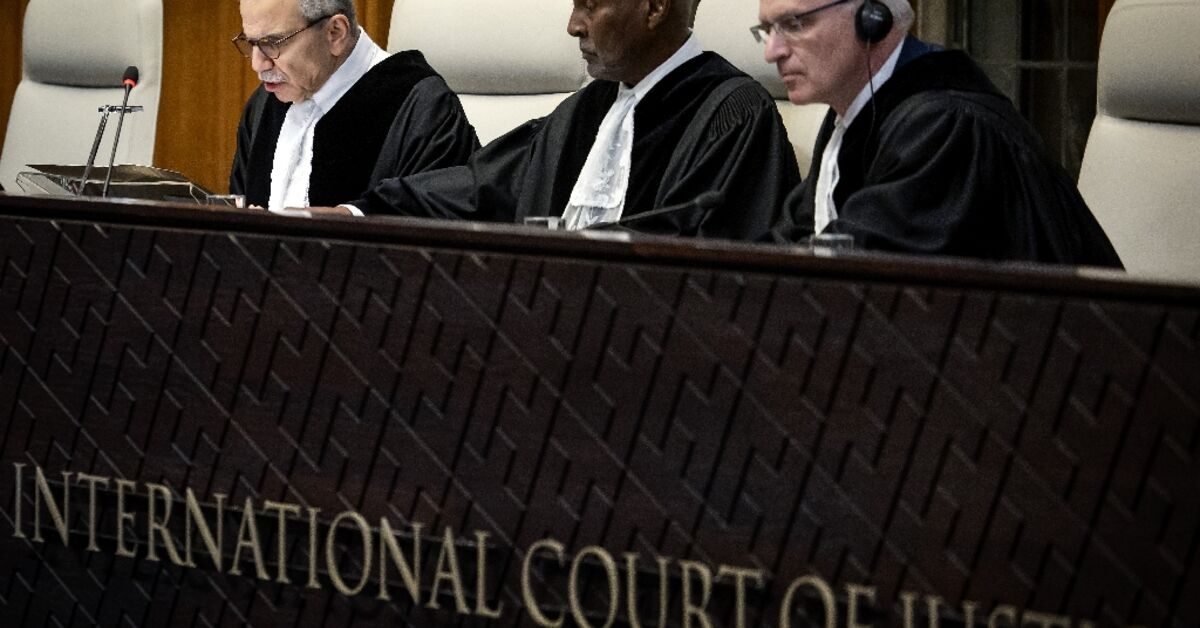“Hardly anything” will stop Israel’s Gaza war: South African judge in ICJ case

A leading South African judge said on Thursday that there was “little” that could stop Israel from launching its Gaza offensive. Still, Pretoria’s legal action against Israel at the International Court of Justice remains crucial in drawing attention to the dire situation.
South Africa’s lawsuit, filed in December 2023, alleges that Israel’s Gaza offensive, launched in retaliation for an unprecedented Hamas attack on Israel, violated the 1948 UN Genocide Convention. Israel has strongly denied the allegation.
In an interview with AFP, Nambitha Dambuza, an appeals judge at South Africa’s Supreme Court, complained that Israel was subject to few restrictions in waging war.
“The cause of the affected state, Israel, is so profound and they are convinced that they are right and they know that if they continue as before, hardly anything will happen,” Dambuza said.
“States can choose to be accountable and I am not saying that all states are the same. Some are more sensitive to pressure and may adapt their behaviour accordingly, while others may not,” added Dambuza, who was in New York for the UN High Level Political Forum.
The South African case, which Spain tried to join last month alongside several Latin American states, led to several rulings against Israel.
Last month, the ICJ ordered Israel to grant UN-appointed investigators “unhindered access” to investigate the genocide allegations.
In a ruling on January 26, the ICJ also ordered Israel to do everything in its power to prevent genocide during its military operation in the Gaza Strip.
South Africa has already turned to the ICJ several times, arguing that the court must order further, new emergency measures in view of the dire humanitarian situation.
– “Exert pressure” –
On May 24, the court ordered Israel to immediately halt its military offensive in the city of Rafah and keep the key border crossing there open for unhindered humanitarian aid.
It also called for the unconditional release of hostages taken by the Palestinian militia Hamas during its October 7 attack that sparked the war.
Although the ICJ’s rulings are legally binding, the court has no concrete means of enforcing them. Dambuza said that the mere initiation of the proceedings had made the situation public and drawn attention to the alleged violations.
“It has put pressure on people,” she said. “Even though the trial has not brought any tangible relief … by publicly addressing these issues, society is seeing justice – or attempts to achieve justice.”
The war was triggered by the Hamas attack on Israel on October 7. According to a count by the AFP news agency based on official Israeli figures, 1,194 people were killed in the attack, most of them civilians.
The militants also took hostages, 116 of whom are still in the Gaza Strip. According to the military, 42 of them are dead.
According to the Health Ministry of the Hamas-controlled area, at least 38,345 people, again mostly civilians, were killed in Israel’s retaliatory military offensive in Gaza.
Despite the dire situation, a resumption of negotiations on an agreement on the future of Israel and the Palestinians cannot be ruled out, said Dambuza.
“There was a point where there was rapid negotiation – there was movement in Bill Clinton’s time. And look where we are today. It’s driven by personalities,” she said.
Regarding environmental issues, Dambuza, chairman of the African Judicial Network for Environmental Law, said there is a possibility of establishing an international environmental court.
She also said that traditional courts, led by community leaders and widespread in rural South Africa, would play an important role in resolving environmental disputes around the world.
“It would allow easier access than trying to access traditional court systems,” she said. “But they need to be supported.”



